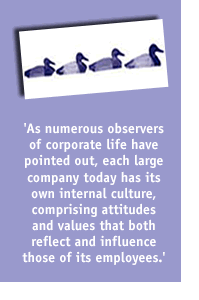
Inferring Personal Wins
| Ïðîäàæè | ||||
| Sales.com | ||||
| Questio... | ||||
by Stephen E. Heiman, Diane Sanchez with Tad Tuleja
To attain the much coveted Win-Win outcome, you need to do at least two things. First, you need to identify which Result(s) each of your Buyers needs to get from your sales proposals. Then you need to show each of them how the Result(s) can bring him or her a personal Win. When you accomplish these two tasks, you’re delivering Win-Results.
 It
isn’t always a straightforward task to understand and address your customer’s
subjective needs in this way. But determining their Win-Results needn’t
be all guesswork either. Years of working with sales professionals in
various fields have taught us that there are three reliable methods for
doing so:
It
isn’t always a straightforward task to understand and address your customer’s
subjective needs in this way. But determining their Win-Results needn’t
be all guesswork either. Years of working with sales professionals in
various fields have taught us that there are three reliable methods for
doing so:
1. You can infer your individual customers’ Wins, either from the Results they’re likely to want or from what you know about their attitudes and lifestyles.
2.You can ask them directly what’s in the sale for them.
3. You can get Coaching.
In this article,
we’ll concentrate on perhaps the most common method for determining
Wins: inference. Even though each of your customers Wins in an individual
way, categories of buyers tend to look for similar Results
for their organizations. Knowing this can help you assess whether
or not a particular customer is likely to Win with a particular Result.
True, determining Results alone is never enough, but if you start
with the Results that a customer wants in a given situation, you’ll
be in a better position to infer the different Wins that each of those
Results can give him. Here are some
examples of Results. This outline has been useful to many of our clients
in getting a handle on Results that typically produce Wins for people
in each of the four Buying Influence categories. Economic Results
User Results
Technical Results
Coach (Wins)
(Notice that Coaches
don’t have their own Results—only Wins. Your success in the sale
is the Result that will give your Coach a Win.) There’s an element
of speculation in inferring Wins from Results, so you need to double-check
your inference by looking at other data. It’s likely that you already
have access to that data. If you’ve called on a customer three times,
you already know something about her Wins. If her office is full of
golf trophies and community plaques, she’s probably got a strong need
for achievement and recognition. If pictures of her children dominate
the walls, security or family approval might be a key. If her appointment
schedule is a model of regularity—if your one-hour meeting begins
promptly at 10 a.m. and ends precisely at 11 a.m.—then she probably
values precision and efficiency. The more you know about your customers’
lifestyles and attitudes, the better you’ll be able to infer their
personal Wins. You can pick up
other data from the company culture in which the individual works.
As numerous observers of corporate life have pointed out, each large
company today has its own internal culture, comprising attitudes and
values that both reflect and influence those of its employees. For
example, recognition for public service is more likely to be seen
as a Win by people in a company that projects a high community profile
than by those in one that prefers isolation. Being seen as an innovator
or a maverick is more likely to be appreciated as a Win in a company
that sees itself as the leading edge of an industry than in one that
has been doing business the same old reliable way for 50 years. We’re not saying
that individual customers’ values are ever merely a reflection of
their companies’ values. But company cultures are still a valid standard
against which to check your impressions of a given person’s Wins.
One caution: Remember
that inferring is only a sophisticated form of guessing. Your inferences
should always be checked by asking the customer directly, and/or
by getting Coaching. Adapted from The
New Strategic Selling
Stephen E. Heiman, Diane Sanchez, with Tad Tuleja © 1998 by Miller
Heiman, Inc. All rights reserved with permission of William Morrow
& Company, Inc. and Warner Books